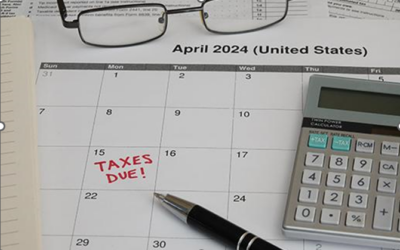It’s no secret that energy costs keep going up. If you’ve pumped gas recently, you’ve may have remarked on the price! The good news is that federal tax credits are available to people who invest in energy efficiency in their home and vehicle. This has the dual benefit of saving you money in the short term (through the credits) and in the long run (through savings on energy costs).
People who make eligible energy-efficient improvements to their homes can receive a tax credit of up to 30% of the cost of the improvements, for a maximum of $3,200. You can take the credit every year you make eligible improvements, from 2023 through 2032. That means if you invest in solar panels this year, you can get a credit, and if you upgrade your windows next year, boom, another credit.
You’ll notice I’ve used the word “eligible” a lot. That’s because the IRS is specific about what counts for a tax credit. Let’s look at what qualifies for 2023 energy tax credits.
First, take note that the first three home improvement tax credits listed here are only for your primary home, which the IRS defines as the home where you live for most of the year. Also, they are only for existing homes. If you build a new home, your builder likely will know about any tax incentives available for energy efficient choices.
1. Home energy audit
This one is pretty straightforward, and I encourage anyone who thinks they might be interested in these credits or in energy efficiency to start with a home energy audit.
The home energy audit must conducted by a certified home energy auditor. The auditor provides you with written recommendations for improving energy efficiency after looking at things like:
- Past energy bills
- Personal energy use
- Air leaks in rooms
- Insulation in the walls and attic
- Thermographic scan
- Blower test
This audit can be conducted every year for the tax credit, if you wish.
Tax credit: Up to $150
2. Building components
Your home energy audit may find that your doors or windows are leaking air. The good news? You can get a tax credit for upgrading to more energy-efficient building components. Qualified building components include:
- Exterior doors
- Exterior windows and skylights
- Insulation and air sealing materials
Tax credits: Up to $250 per door and $500 total on doors; up to $600 on windows; up to $1,200 total across all building component and energy audit credits
3. HVAC
Another source of credits is upgrading your heating and/or cooling system to be more energy efficient. This can include:
- Central air conditioners
- Water heaters
- Boilers
- Heat pumps
- Biomass stoves and boilers
- Furnaces
Tax credit: Up to $2,000 per year for heat pumps and biomass stoves; up to $600 per year for air conditioners, water heaters, boilers, and furnaces.
4. Solar panels
It might seem surprising given our winters, but Minnesota is building out a robust solar energy infrastructure, and you can take advantage of that. Solar energy installations are not only eligible for a tax credit of 30% of the cost of installation, but Minnesota also has some state-specific incentives and tax exemptions. This credit is not part of the $3,200 maximum for the components listed above, there is no maximum on this credit, and it can apply to any home you use as a residence.
Tax credit: Up to 30% of installation cost
5. Electric vehicles
Next to your home, your vehicle is probably your largest energy consumer. You can reduce that energy consumption by buying a hybrid or electric vehicle. And, of course, there’s a tax credit for that too. New plug-in electric vehicles or fuel cell vehicles bought in 2023 or after may qualify for a clean vehicle tax credit.
Unlike the home improvement credits, there is a cap on households who qualify. Modified AGI may not exceed $300,000 for married couples filing jointly, $225,000 for heads of households, and $150,000 for all other households.
Tax credit: Up to $7,500
More to come?
Currently, all of these incentives (except for the solar energy exemptions) are at the federal level. The 2023 Minnesota legislative session ended without action on tax bills that include energy-efficiency credits. If state tax changes pass next session, you can be sure we’ll let you know!
In the meantime, you can think about what, if any, of these options make sense for you. If you choose to make home improvements or purchase a new vehicle, it’s nice to know that you might benefit at tax time.

Mallory is a Wealth Manager and Shareholder. She listens deeply and helps simplify complex financial situations to help clients move into an easier, clearer future. She aims to give financial advice that is compassionate, wise, and easy to understand.



